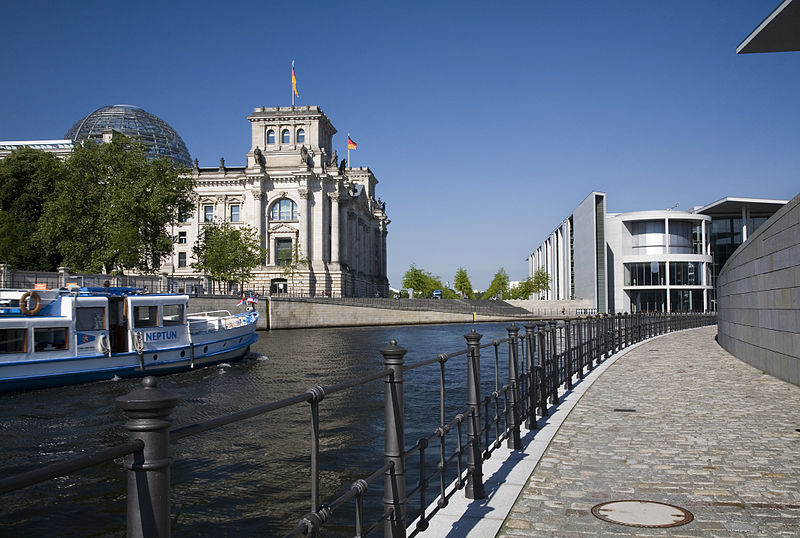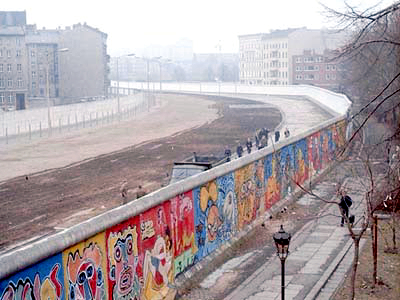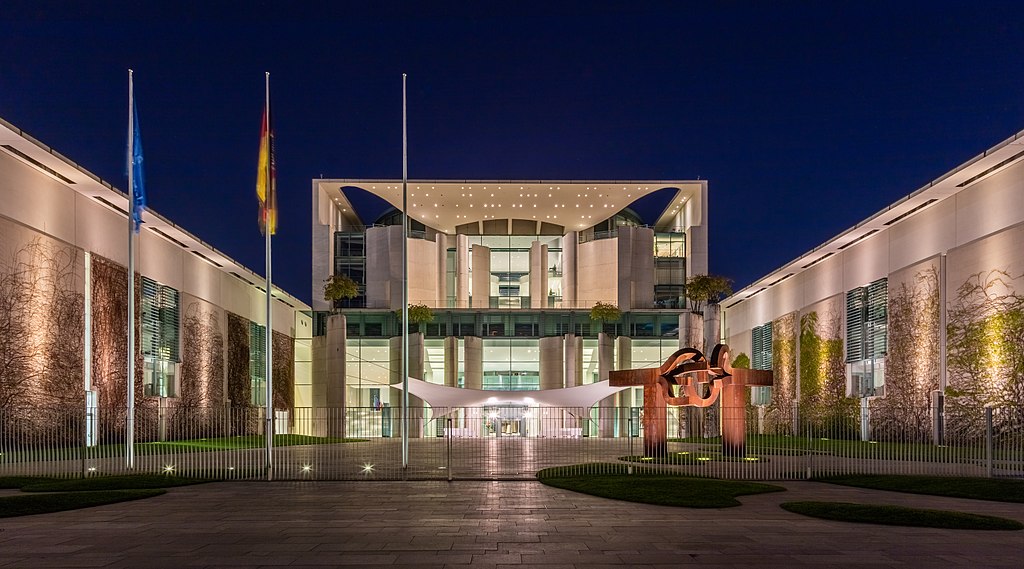How did Berlin redevelop so rapidly that today its economy is way better than Moscow's following the Cold War?
-
Perhaps if some objective difference was added to the question to talk about, it would help. For instance, GDP growth numbers for the two cities may be available somewhere.– T.E.D. ♦Commented Feb 25, 2021 at 13:36
-
5Your question is very unclear and, in the current form, unanswerable, but if you want to understand the development of East Berlin after 1990, consider the amount one money invested into its infrastructure by the German Federal government. Start by taking a look here.– Moishe KohanCommented Feb 25, 2021 at 13:43
-
7Do you realize that East Germany did join West Germany, which was about four times larger at that point? West Germany provided money, experts, stability, and an existing legal/political framework which overwhelmed anything the GDP revolutionaries might have proposed.– o.m.Commented Feb 25, 2021 at 16:30
-
1I did a first crack at editing this, fixing up the title and the first paragraph. I didn't touch the later 2 because frankly I don't understand what they are asking. Could we have some clarification on that? What kind of "bad reputation" are we talking about? What makes you think having been a "puppet state" has relevance to the question?– T.E.D. ♦Commented Feb 26, 2021 at 14:44
-
1Given that I modhammered this closed, I've modhammered it open. I deleted the two questions that none of us could understand - if @victor can explain them we can add them back. But I think the question as now stands can be answered.– MCW ♦Commented Feb 26, 2021 at 14:48
1 Answer
Berlin, not East Berlin
To begin with, there is no such place anymore as East Berlin, as can be confirmed by Wikipedia, and therefore it is impossible for East Berlin since 1990 to have competed with Moscow in anyway shape or form.
East Berlin was the de facto capital city of the German Democratic Republic from 1949 to 1990.
East Berlin Coat of arms by MaddenMadden
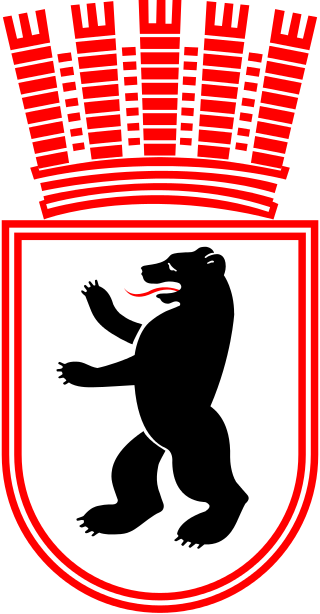
West Berlin
Now, before 1990, there was also a "West Berlin", and unlike East Berlin that suffered greatly, West Berlin was controlled by its Western allies during the cold war, and was actually a wealthy city, according to Wikipedia and the book " Divided, But Not Disconnected".
West Berlin was formally controlled by the Western Allies and was entirely surrounded by the Soviet-controlled East Berlin and East Germany. West Berlin had great symbolic significance during the Cold War, as it was widely considered by westerners an "island of freedom". It was heavily subsidised by West Germany as a "showcase of the West".1
Berlin
Therefore, as West Berlin and East Berlin merged in 1990 after the fall of the Berlin wall, i assume that you mean simply Berlin, and historically Berlin has always been a large and wealthy metropolis, and a prime location for financial institutions such as banks, according to Wikipedia.
Berlin became one of the largest and most advanced industrial centers in Europe after 1870. After 1900 the Berlin banking district became a major continental financial center and was home to a number of prominent banks.
Berlin 1847, by Karl Eduard Biermann
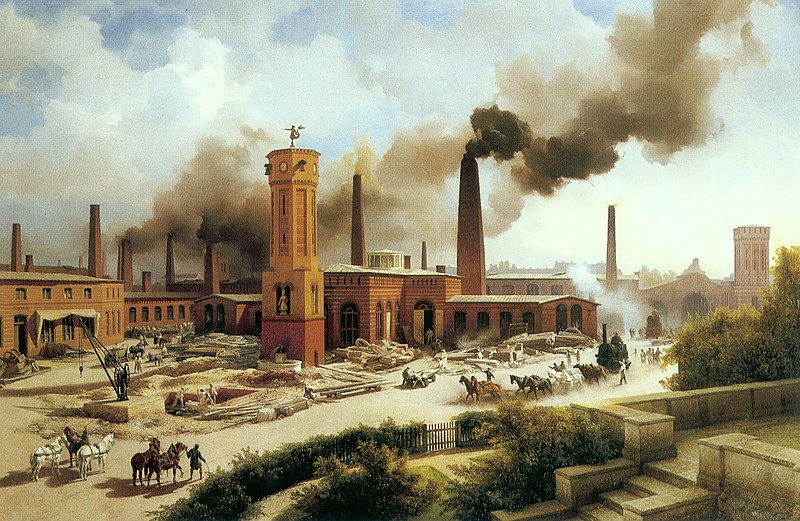
Geography
The reason for Berlins success is put down to geography and its convenient and close proximity to the river spree which offers[ed] an amazing trade route.
Berlin was founded at a point where trade routes crossed the river Spree and it quickly became a commercial center.
Berlin 10% unemployment
Now, it all depends on what criteria we are using when deciding which country has outgrown which.
To begin with Berlin has a 10% unemployment rate
Moscow 1.5% unemployment
Now, using the exact same wikipedia graph for Russia, we see that in comparison to Berlins 10% unemployment rate, Moscow has only a 1.5% unemployment rate.
Berlin 31 universities
According to Wikipedia Berlin has 31 universities
Moscow 60 universities
In comparison to Berlins 31 universities, moscow has 60 universities according to Wikipedia
Berlin Metro population 6,144,600
According to Wikipedia Berlin has a Metro population of 6,144,600
Moscow Metro population 20,004,462
And in comparison to Berlins 6,144,600 residents, Moscow has a metro population of 20,004,462
After the Cold War, how did East Berlin develop so much more rapidly than Moscow? The question is actually a little bit of a paradox, as whilst Berlin being more developed than Moscow is debatable, it is in fact true that Berlins economic rise has been sudden and meteoric, but this can easily be explained with a little bit of lateral thinking. Quite simply, Moscow was never devastated by world war 2 and never suffered the hardships of being partitioned like Berlin did, and so they have not required to rebuild, like Berlin has.
Berlin's economy has been affected through the years by the city's changing geopolitical fortunes from 1961-1989. The city stagnated economically during the Cold War, when West Berlin was isolated geographically and East Berlin suffered from poor economic decisions made by East Germany’s socialist central planners.
Bonn to Berlin
The most critical factor in Berlins rise back to their potential was the move of the Federal government from Bonn to Berlin, which brought with it thousands of jobs.
The move of the federal government from Bonn to Berlin in 1999 brought some economic stimulus and tens of thousands of jobs from government employees, parliamentary services, lobbyists and journalism to Berlin. Berlin’s service sectors have also benefited from improved transportation and communications links to the surrounding region.
-
4Sorry, but this is a badly compiled collection of wikipedia information without any understanding of the background or the situation. The present population of Berlin is less than 4 million, with the highest amount just under 4.5 million in the 1930's and 1940's (and not over 6 million as claimed). Commented Feb 26, 2021 at 17:53
-
@Mark Johnson Metro population is what i used. This includes surrounding areas.. I clearly state this. "metro population". Commented Feb 26, 2021 at 17:56
-
You are lumping the population and infrastructure of 2 separate states togeather and treating them as one. The latter is mainly rural and a compleatly different set of priorities. Commented Feb 26, 2021 at 21:58
-
What does the main train station (Hauptbahnhof) have to do with 'Government headquarters'? Commented Feb 26, 2021 at 22:03
-
2As someone who lives in Berlin, I can assure you that the very loose cooperation between the states Berlin and Brandenburg, which came about after a refused referendum to merge both states, is different from what is normally understood as a Metropolen area and is even often counter productive. For this topic/question (development of eastern Berlin after 1990), the area outside of Berlin should be left out. Commented Feb 26, 2021 at 22:54

